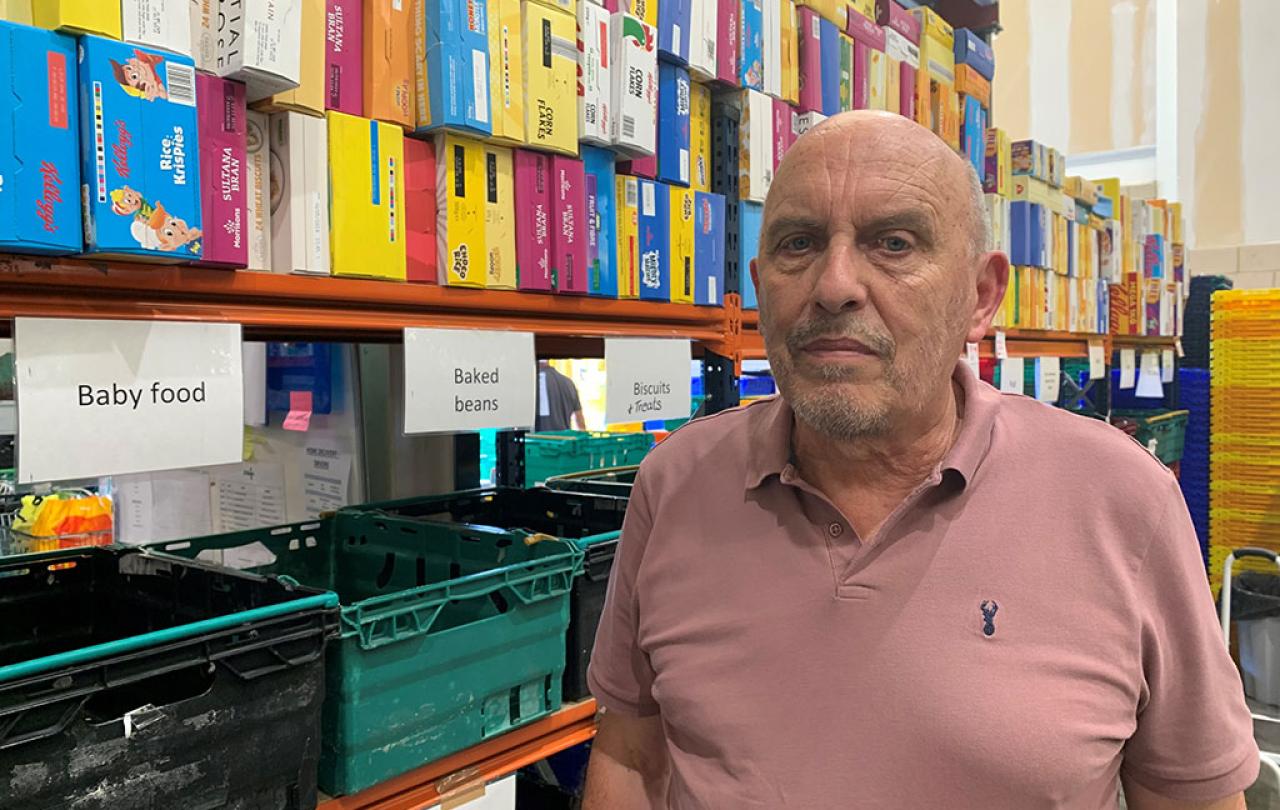The moments when the Israeli hostages are exchanged for the Palestinian prisoners bring many strong feelings. Powerful pictures capture the moment when people on both sides of the brutal conflict regain their freedom. Such images show the hostages embraced by their families and relatives, while the Palestinian men and women are applauded as heroes by their communities. Camera recordings are shaky, we hear the noise of voices, jubilant ones, and see tears on the faces of relatives. The dominant colour among crowds in Tel Aviv is white and blue (the star of David), with yellow ribbons symbols of hope. On the other side: the black military uniforms with green headbands among the members of the Hamas.
Watching these unfolding events one detail can be easily missed: the little red cross. It is there on the Israeli and Palestinian soil, it is on the white vehicles and on the uniforms of volunteers who mediate exchange of hostages and prisoners. This symbol, shown to us, although originating in the Swiss flag, is still accepted by both sides of the conflict as the sign of trust. Of course, the sign of the cross is well known to the Jews and Palestinians and, sadly, has not been only the symbol of glorious, charitable events in the history of that land.
Spotting the small red cross reminds me of the film Schindler's List and the little girl in a red coat… Not everyone can see that girl in red in the overwhelming chaos of events. The viewers can be easily distracted or close their eyes to avoid the brutality of the scene on the movie. What we watch on the day the exchanges commenced is not a movie, it is broadcasting live, and the red cross is there. What is its significance and what does it mean?
At least for me it is a powerful reminder that this small red cross is accepted by everyone – even those who are not Christian - as the sign of their trust and hope in safety, in humanity, in value of promise. In our world of secularism, growing populism, AI, in the world of hate, cruel killings and brutal treatment, on the streets of Gaza where life is annihilated, and outside of cold, grey prisons in Israel, the small red cross appears and embraces both groups. Is not there to judge, does not expect any recognition of its mission, still, remains humble, silent, but a visible reminder of a compassion that is greater than hate. It is accepted by both sides as the bridge on which they wish to walk to their future. Who knows, maybe it will become the door behind which many people from both communities will leave the horrors of this broken world.
Join with us - Behind the Seen
Seen & Unseen is free for everyone and is made possible through the generosity of our amazing community of supporters.
If you’re enjoying Seen & Unseen, would you consider making a gift towards our work?
Alongside other benefits (book discounts etc.), you’ll receive an extra fortnightly email from me sharing what I’m reading and my reflections on the ideas that are shaping our times.
Graham Tomlin
Editor-in-Chie





